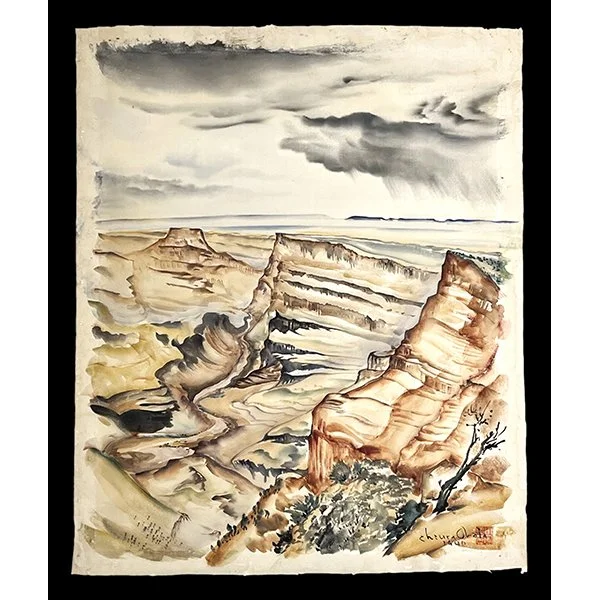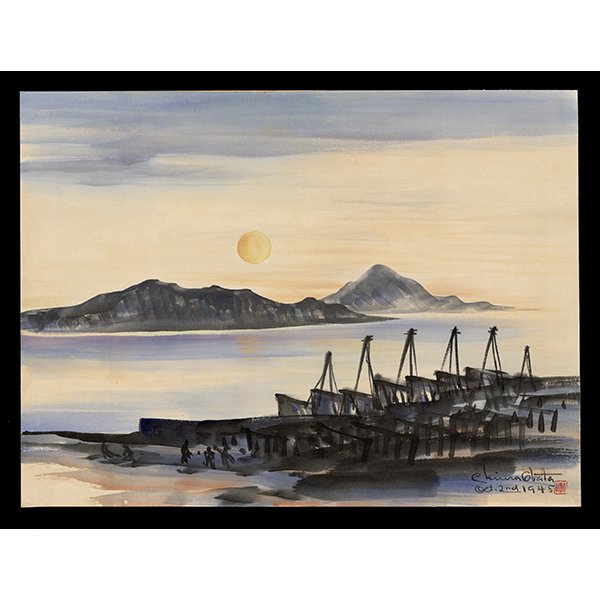<b>SILENCE, LAST TWILIGHT ON AN UNKNOWN LAKE</b> / Chiura Obata1930<b>SOLD</b></em>
ARTIST: Chiura Obata (1885-1975)
TITLE: Silence, Last Twilight on an Uknown Lake, Johnson Peak
MEDIUM: Woodblock print
DATE: 1930
DIMENSIONS: 12 3/4 x 19 3/8 inches
CONDITION: Excellent; no problems to note
NOTE: With original publisher’s folder and mat
SOLD
.
ARTIST: Chiura Obata (1885-1975)
TITLE: Silence, Last Twilight on an Uknown Lake, Johnson Peak
MEDIUM: Woodblock print
DATE: 1930
DIMENSIONS: 12 3/4 x 19 3/8 inches
CONDITION: Excellent; no problems to note
NOTE: With original publisher’s folder and mat
SOLD
.
ARTIST: Chiura Obata (1885-1975)
TITLE: Silence, Last Twilight on an Uknown Lake, Johnson Peak
MEDIUM: Woodblock print
DATE: 1930
DIMENSIONS: 12 3/4 x 19 3/8 inches
CONDITION: Excellent; no problems to note
NOTE: With original publisher’s folder and mat
SOLD
.
Details
A Japanese-American artist, Obata was enamored by the beauty of the American landscape. He routinely took trips out in remote natural locals to sketch and paint directly from nature. In 1928, Obata took a trip to the Yosemite Valley region and sketched designs that would later be translated into finished woodblock prints. This work, Silence, Last Twilight on an Unknown Lake, Johnson Peak, is one of Obata's most celebrated designs from that trip.
The work features a stunning view of a mountain peak with a receding glacier. The work has a quality of stylized abstraction found in the contemporaneous work of Georgie O'Keeffe, but the design restrains itself from moving beyond the representational. The foreground is colored in a green moss-like tone, populated with rocks that descend to a pristine lake that appears untouched by human activity. The blues that deepen to purples on the rockface suggest the last moments of the day. Though the light is quickly dissipating, one can imagine Obata is left motionless in awe by this stunning sight.
Connoisseur's Note
The print was published by Takamizawa in 1930 in an edition of 100 impressions. The print was never framed or displayed in light for extended periods of time and retains its original vibrant, rich coloration. The print is accompanied by the original Takamizawa paper mat and woodblock-printed folio. These accompanying materials are rarely seen outside of institutions.












